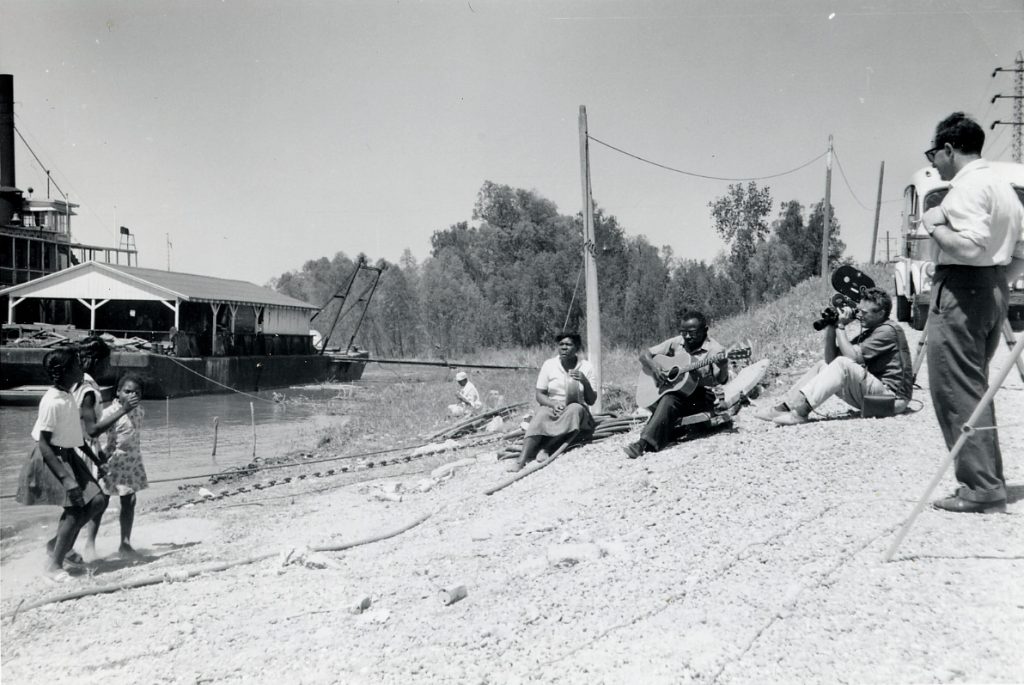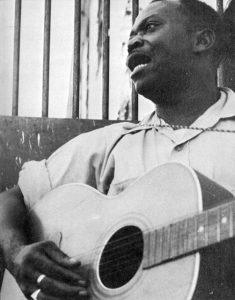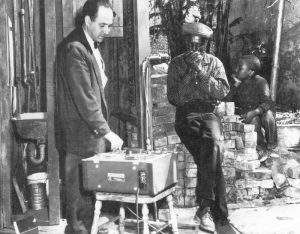The Harry Oster Collection
Between 1956 and 1963, Dr. Harry Oster, professor of English at LSU Baton Rouge, roamed the back roads of Louisiana in search of traditional music. A background in literary folklore put him on the trail of French and Anglo ballads, but it did not take long for a much broader field of music and related culture to reveal itself: blues, Cajun dance music, African American old time fiddle tunes, creole catholic hymns called cantiques, traditional New Orleans jazz, Mardi Gras Indian chants, church services, informal jam sessions and religious gatherings, prison work songs and spirituals, children’s songs, street vendor cries, personal histories, and folktales.

In 1964 Oster moved to Iowa where he continued to record regional music traditions including Czech, German, Norwegian, Scots-Irish, Amanite, Mennonite, Dutch, and Mesquakie. He also brought southern musicians such as Son House, Robert Pete Williams, and Reverend Gary Davis to perform at the University of Iowa.

Oster’s Louisiana recordings invite us into corners of America most of us have never seen, offering glimpses of a rural world evolving with the times yet inextricably bound to its plantation past. Some of them were issued on his independent label Folklyric Records, and later reissued on Arhoolie. The vast majority of them, however, remain unissued, unidentified and largely unheard altogether.
In 2006, the Arhoolie Foundation catalogued and digitized what we understood to be the last of Oster’s field recordings bestowed to us by his widow. In 2012 we discovered that many known recordings listed in discographies and mentioned in Oster’s writings could not be accounted for among the tapes in our collection, nor were they to be found in the few other repositories with which he had relationships. Further inquiries with his widow revealed several hundred additional tapes still in her possession: not only the lost sessions in question, but many more spanning the full breadth of his career beginning with his earliest Louisiana recordings of French ballads, Creole hymns and Cajun dances, all the way to the fiddle tunes, breakdowns and blues he captured in Iowa decades later.

Thanks to generous grants from the Grammy Museum and the National Recording Preservation Foundation, we have hired Grammy-nominated audio restoration engineer Jessica Thompson to digitally preserve this long lost treasury of recordings. She writes, “A collection of field recordings like this offers an incredibly deep insight into historic music scenes. These recordings are not just the hits or the best takes. They contain all the interstitial information, which adds tremendous value—the conversations before and after songs, the audible evolution of songs among different performers and over the years, the interactions between Oster and the performers he recorded. These tapes wind up being primary source records of the music and culture of a particular time and place, which makes them of great historic importance to folklorists, musicologists and other researchers.”
